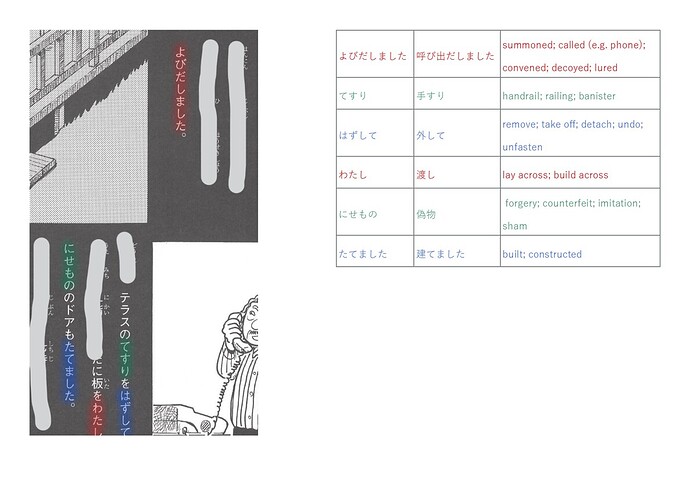Pages 44 - 56
Story 1: 赤いとびらの家事件
Start Date: 18th November
Last Week: Case Part 4
Next Week: Solution Part 2

Last sentence of page 56 for eBook readers:
黒星けいぶは応援をよんだ。
Upcoming Schedule
| Week | Start Date | Part | Page Numbers |
|---|---|---|---|
| Week 5 | November 18th | Solution Part 1 | 44 - 56 |
| Week 6 | November 25th | Solution Part 2 | 58 - 67 |
| - | December 2nd | Break |
- |
| Week 7 | December 9th | Story 2 Case | 70 - 82 |
| Week 8 | December 16th | Story 2 Solution | 84 - 89 |
Vocabulary List
Please read the editing guidelines in the first sheet before adding any words!
Discussion Guidelines
-
Please blur/hide major events in the current week’s pages (however early they occur) and any later content, like so: [spoiler]texthere[/spoiler]
Err on the side of caution! -
When asking for help, please mention the page number (or % for eBooks).
-
Don’t be afraid of asking questions, even if they seem embarrassing at first. All of us are here to learn and someone else will probably be grateful you asked!
-
People usually find that they engage with and enjoy the discussion much more if they don’t read ahead, though of course it’s up to you

-
To you lurkers out there: join the conversation, it’s fun!
Participants
Mark your participation status by voting in this poll:
- I’m reading along
- I’m still reading but haven’t reached this part yet
- I’m dropping this book
0 voters
If you’ve read it before but will join in the discussion (or have read ahead), please select “I’m reading along”!



